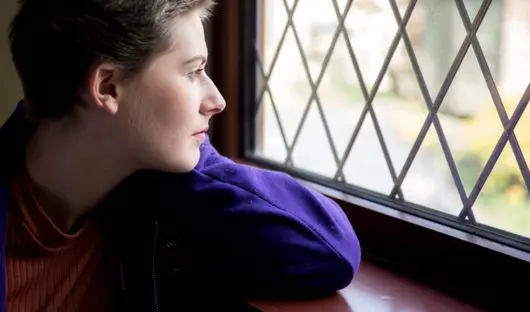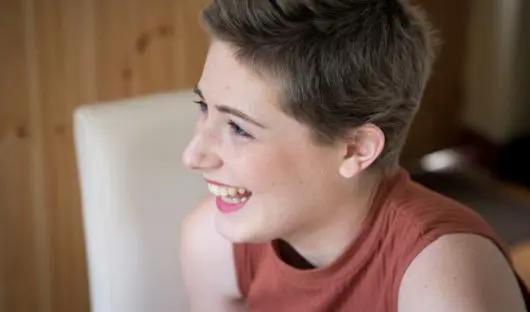When another friend with cancer dies
The friendships you make on treatment are irreplaceable. Going through cancer together at the same age can mean sharing a special bond and mutual understanding that other friends on the outside just don’t get. So if this friend gets a bad prognosis it can be shattering.
How grief feels
You might feel heartbroken, numb, devastated or in total disbelief. Even if you expected it at some point, it can still come as a real shock. It’s hard to believe that you were talking to them one day and today, they aren’t here anymore.
At first, it might feel consuming. You might just need to stay in bed and cry. The pain might seem unbearable, and that you just can’t cope.
Over time, the intensity should subside and you’ll find that there will be moments of normality where you won’t be thinking about your friend. That’s not to say it won’t deeply affect you. There will be times where you’ll miss them terribly and will just want to pick up the phone and talk to them. Certain times of the year or special occasions might bring you right back into the darkest bits of your grief.
People often talk about grief as being a series of stages but it doesn’t always work like that. The feelings can be jumbled. The important things to remember are:
- You don’t have to ‘get over’ your friend. Ever.
- Learning to live with it will take time.
- Your grief will be more complicated because of your own experience.
This short film explores grief and how people deal.
How it can make you feel about your own mortality
It’s natural for you to think about your own cancer. When a friend with cancer dies, it might suddenly hit home that it could be you. This can be a terrifying thought. You might not have even considered the possibility of not making it and this news might have floored you.
Up until now, you might have found it difficult to open up about these sorts of fears. There might be pressure to ‘be positive’ and ‘stay strong’. Positivity is an essential part of getting through, so it’s not necessarily a bad thing. However, it’s also important that you get support with your worries and voice what’s in your head.
Maybe your family, partner or friends aren’t the people to talk to about your fears around dying and the ‘what ifs?’ that cancer can bring. There are plenty of people you can talk to though – try starting with someone you get on with and trust in your team at hospital. They will be there to listen, with no pressure, agenda or judgement. Sometimes, just getting things out can make a huge difference to how you feel. Exploring these feelings might help you to come to terms with living with uncertainty.
Dealing with survivor guilt
It’s tough being the one left behind. Their death will feel deeply unfair, and you might feel guilty that you made it and they didn’t. There’s no point us telling you that you have nothing to feel guilty about – you probably know that already. Survivor guilt is difficult because it’s a natural part of what you’ll have to go through. In fact, it can be useful to see it as part of the grieving process.
At first, you’ll feel the world has been robbed and your focus will be on the empty hole where they were. As time goes on, you’ll be able to focus more on the happy memories and important times you shared together. You’ll see the value that they brought to your life. This will help you to remember that they would have wanted you to carry on and be happy. Making the most of your life doesn’t mean that you’re betraying them. Nor does it mean you’ll ever forget them.
Try not to get too hung up on the ‘whys’. Think about what your loved ones would say about you being in their lives – think about what your friend would have said.
When grief isn’t normal
It’s normal to be sad and angry – to cry and let it out. You don’t have to ‘be strong’ all the time. Sometimes it’s best to let yourself feel the pain. However, over time, you should be able to carry on with your normal life and feel breaks of sunshine through the clouds. If you feel hopeless, and things aren’t getting any better, then your grief might have become ‘complicated’.
Grief and depression share similar traits so it can be hard to separate the two but it’s important to seek extra support if things aren’t getting better for you, or you continue to feel that you can’t cope.
Getting help
Counselling is nothing to be ashamed of. Getting this sort of help doesn’t mean that you’re weak or that you’ve failed. If you broke your leg, you would see a doctor to fix it. The same goes for your mind. They’ll help you to find ways of coping, and in time, to be open to the positives – like having this person in your life and the times you shared together.
Support groups are another great source of help. Meeting likeminded people and sharing experiences can be therapeutic, and will help you to feel less alone.
Make sure that you talk to someone. It doesn’t matter if it’s a friend, parent, partner, sibling, professional, your GP – the hardest part can be starting the conversation but once you’ve said ‘I’m struggling’, the rest should be easier.
Speak to someone and get help nowYou might also like to read
Contacts for your emotions and mental health
Useful organisations, resources, apps and communities for emotional and mental health support.
Read more
For teens and young adults
Every young person is unique. That's why we provide a service to fit your lives and aspirations.
Read more
Body and health
Looking after your emotions and general wellbeing on treatment and afterwards.
Read more